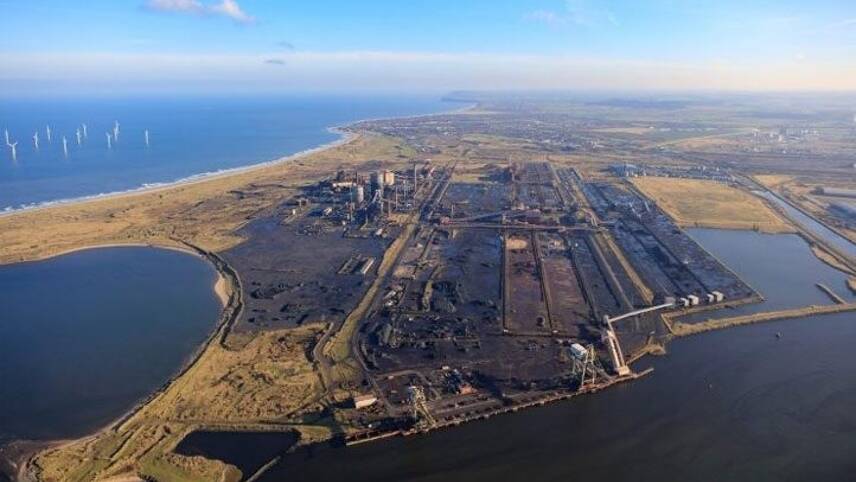Register for free and continue reading
Join our growing army of changemakers and get unlimited access to our premium content

Pictured: The Teesworks industrial zone on Teesside - the proposed site for BP's projects. Image: BP
The firm said it will apply for permission to build a 60MW green hydrogen plant at the same site in Teesside where it this year gained planning consent for a 500MW blue hydrogen plant, due to come online in 2027. For the blue hydrogen, BP has already signed memorandum of agreement (MoU) papers with potential purchasers including chemicals manufacturer Venator and Northern Gas Networks.
The green hydrogen plant, BP has stated, should come online by 2025 if the planning process runs smoothly. It would then be expanded in stages, to reach 500MW of electrolysis capacity by 2030. By 2030, the blue hydrogen facility should be expanded to 1GW.
BP said in a statement that the planned growth in production at the green hydrogen plant will “match production and demand”, as sectors including road transport, marine and heating increase the use of hydrogen in the coming years. The company expects businesses operating heavy goods vehicles (HGVs) to be among the first customers and recently signed a partnership with Daimler Truck to develop a network of up to 25 UK-based truck refuelling stations this decade.
The UK Government is notably targeting 5GW of “low-carbon” hydrogen production by 2030 under the Hydrogen Strategy – a feat it estimates will attract £4bn on private sector investment. BP claims that its green and blue hydrogen proposals for Teesside could account for 30% of this total.
A final investment decision is expected on the green hydrogen project in 2023. Elsewhere, BP is planning green hydrogen projects in Rotterdam, Lingen, Castellon and Aberdeen.
Tees Valley Mayor Ben Houchen called the announcement today (29 November) “yet another coup for the region” as it strives to create safe and well-paid jobs in low-carbon industries.
Houchen said: “We’re quickly becoming the go-to place for innovation in the hydrogen sector, thanks to our status as the UK’s first Hydrogen Transport Hub and bp’s commitment with other schemes.
“Whether it’s hydrogen, carbon capture, utilization and storage or offshore wind, Teesside, Darlington and Hartlepool have the know-how, sites and ambition to deliver.”
Teesside is one of the UK’s major industrial hubs and accounts for 5% of national business-related emissions. As well as blue and green hydrogen, businesses are planning to install other alternative fuel infrastructure, carbon capture and storage technologies and renewable electricity generation to help decarbonise the region.
Elsewhere in the UK, green hydrogen projects are in the pipeline for Shoreham Port in West Sussex; the Port of Cromarty Firth in Invergordon; the Flotta Terminal on the island of Orkney and Eaglesham Moor, at the Whitelee onshore wind farm.
Sarah George


Please login or Register to leave a comment.